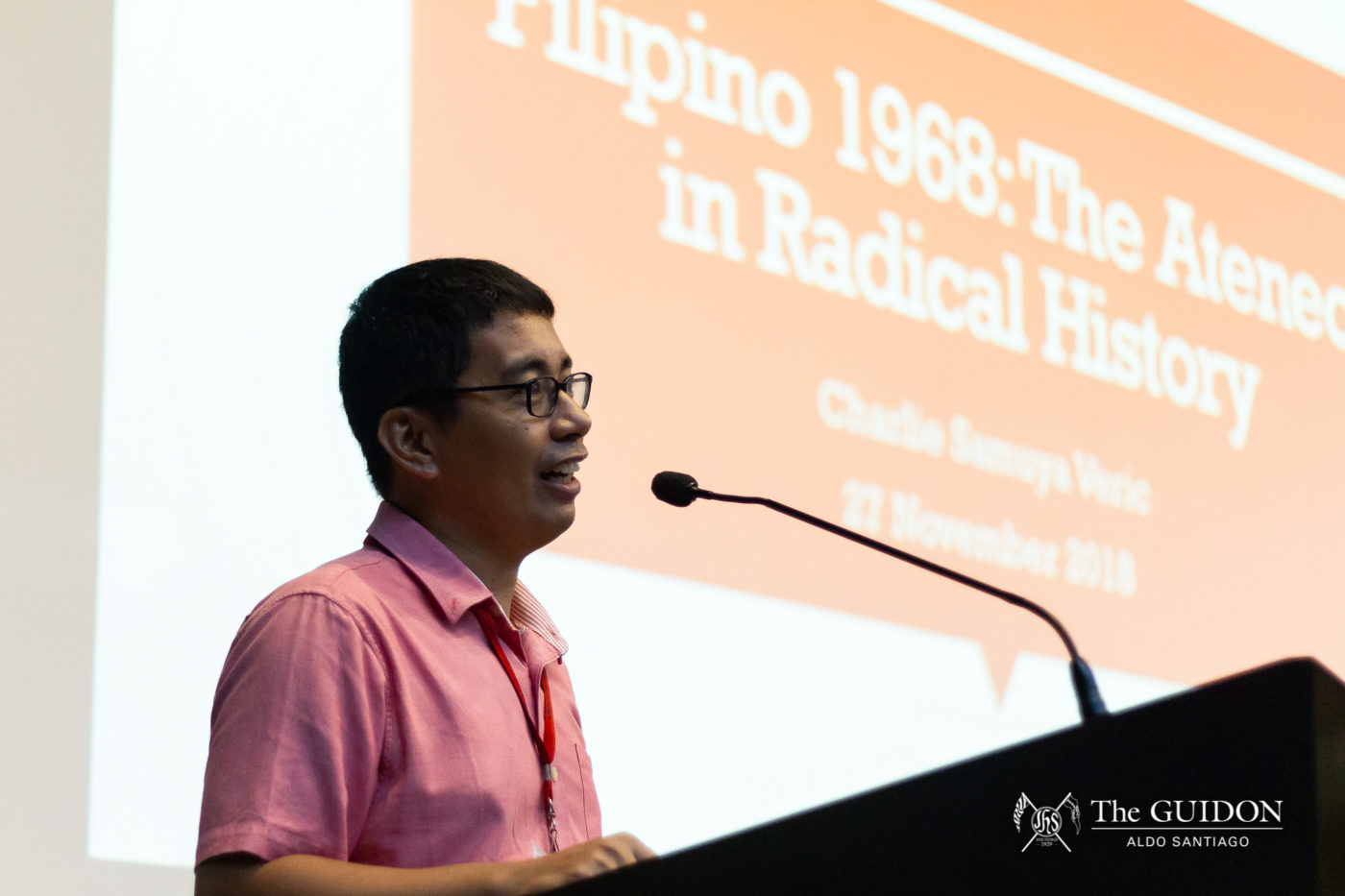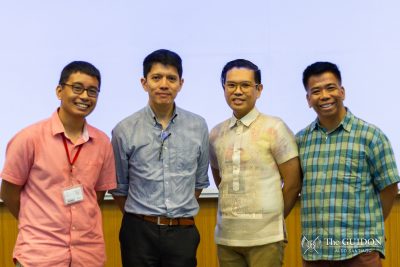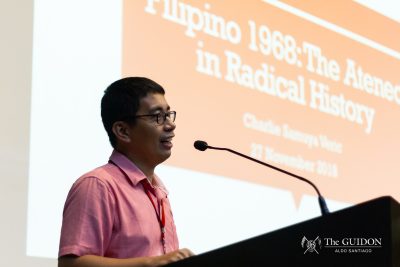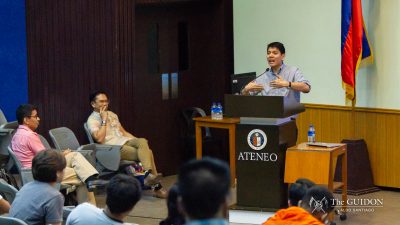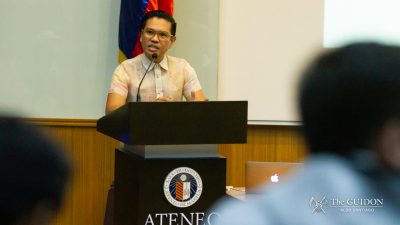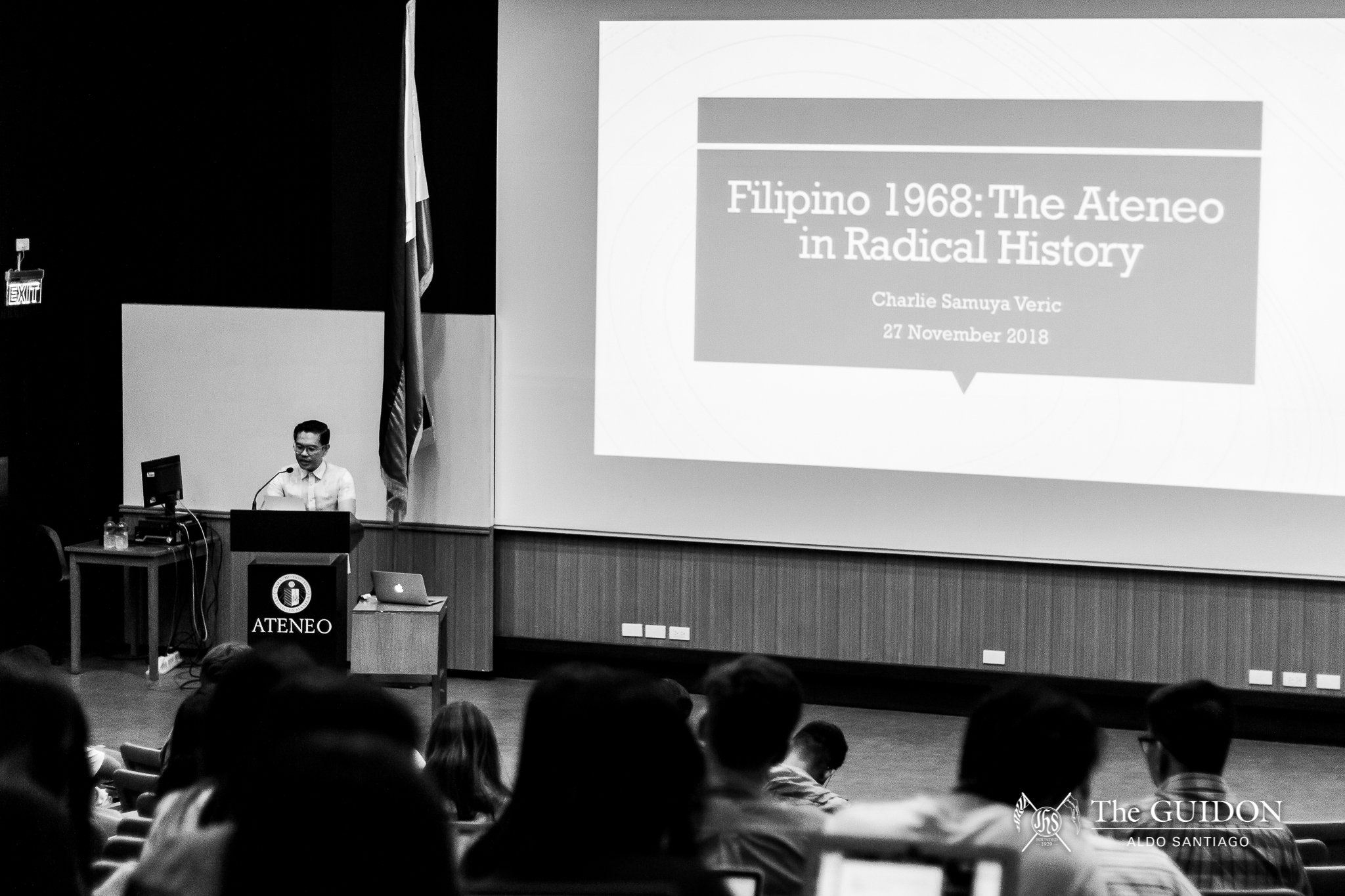 RADICAL EVENTS that affected Ateneo’s history, including the impacts of Filipinization and Martial Law were discussed in a forum in commemoration of the 50th anniversary of the “Down From The Hill” manifesto on November 27 at Escaler Hall.
RADICAL EVENTS that affected Ateneo’s history, including the impacts of Filipinization and Martial Law were discussed in a forum in commemoration of the 50th anniversary of the “Down From The Hill” manifesto on November 27 at Escaler Hall.
English professor Charlie Samuya Veric, PhD, talked about the events following the manifesto’s publication, while journalist and poet Kris Lacaba took a look back at the crimes committed during the Martial Law era and the efforts being made in remembering them.
The manifesto, written by Jose Alcuaz, Gerardo Esguerra, Emmanuel Lacaba, Leonardo Montemayor (BS ‘70), and Alfredo Salanga (AB ‘69), detailed problems of elitism in the Ateneo and called for Filipinization within and beyond the University.
In his discussion, Veric narrated the events leading up to the publishing of the manifesto, noting the outnumbering of American Jesuits in the University faculty and the attempts to find Ateneo identity as a Filipino educational institution.
According to Veric, Antonio Manuud, the English Department chairperson at the time, made plans to reform the University from within by heading the University structure committee with Antonio Romualdez. Manuud also helped form the Filipino Department in 1975 with colleague Bienvenido Lumbera.
Veric also said that Filipinization became an issue of the students when the essay was published in 1968, explaining that they “took ownership of the concept, and advanced it in unimaginable ways” that hastened the arrival of decolonization on campus.”
Veric also discussed that the University response to the manifesto was “explosive,” which led to its restructuring and redirection.
He said that the administration created committees on faculty, students, administration, and curriculum. All of the committees focused on Filipinization efforts the University, including reassessing the teaching faculty and administration, making education affordable for Filipinos, and creating a new undergraduate curriculum.
He added that Filipinization itself “had embodied as a historical concept, and more important, as a political project,” which “remains unfinished to this day.”
The release of the manifesto shifted the political scene within the Ateneo, leading to the rise of student activism on campus. With the declaration of Martial Law, students like Eman Lacaba were motivated to write and protest against the government.
Meanwhile, Pete Lacaba, the father of author Kris Lacaba, was also incarcerated by the military during Martial Law. His son Kris describes the methods of torture used by the military at the time, including the “San Juanico Bridge,” where the subject is suspended between two beds, and received beatings whenever the body touches the floor.
He added that women receive harsher punishments from the military. “Mas grabe pa sa kabababihan (Women have it much worse),” he said. “Nandoon yung threat of sexual violence at nandoon yung actual na sexual violence sa pamamagitan ng rape at iba pang uri ng sexual harassment (The threat of sexual violence is there, and actual sexual violence as well, by means of rape and other forms of sexual harassment).”
In concluding the discussions, Lacaba reminded the audience that in turning our backs on inequalities in the country, citizens contribute to the lessening number of conversations on these issues.

